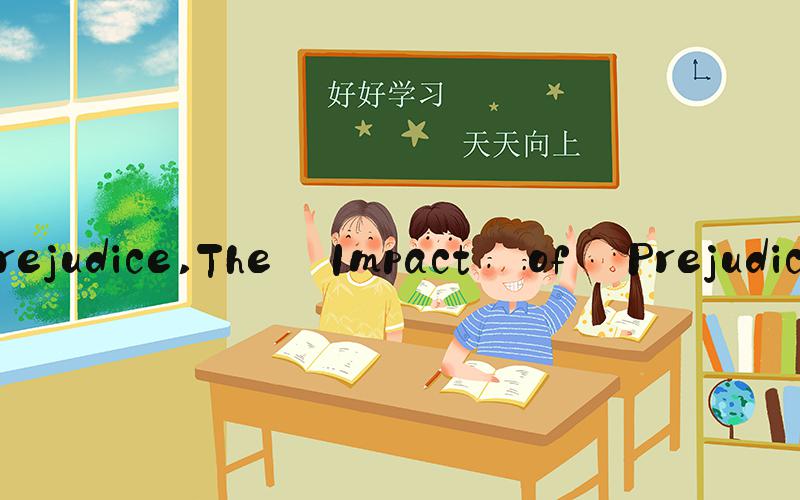 Prejudice: Understanding its Effects and Ways to Overcome it
Prejudice: Understanding its Effects and Ways to Overcome itPrejudice is a deep-rooted and destructive attitude that has plagued society for centuries. It is the tendency to hold negative opinions and assumptions about individuals or groups based solely on their perceived characteristics. Prejudice is often fueled by stereotypes, ignorance, fear, and a lack of exposure to diverse perspectives. It can lead to discrimination, marginalization, and social injustice in various ways, from subtle bias to blatant acts of hate.
The Impact of PrejudicePrejudice has a profound impact on individuals and society as a whole. It affects the mental and emotional well-being of those who are its targets, leading to feelings of hurt, anger, anxiety, and depression. Moreover, it can create negative attitudes and behaviors toward the targeted group, causing them to suffer unjust treatment in various areas such as education, employment, and housing, among others. Prejudice can fuel conflicts and violence between social groups, leading to destabilization and even war in some instances.
The Psychology behind PrejudicePrejudice is a learned behavior that is often based on a person's upbringing, cultural background, and personal experiences. According to social psychological research, prejudice can arise from the basic human need to categorize and simplify complex information. Stereotypes and prejudices are formed when people rely on their limited experiences and stereotypes to make judgments about others, without taking into account individual differences and nuances. Moreover, cognitive biases such as the confirmation bias and the in-group bias can strengthen one's prejudices and make them resistant to change.
Ways to Overcome PrejudiceOvercoming prejudice requires active efforts by individuals and society as a whole. Here are some ways to challenge and overcome prejudice:
1. Education and Awareness:Education is key to overcoming prejudice. People need to be exposed to diverse perspectives, cultures, and identities to challenge their stereotypes and biases. Schools, media outlets, and public institutions can play a crucial role in promoting diversity and inclusion through education and awareness campaigns.
2. Interpersonal Contact and Empathy:Interpersonal contact with people from different backgrounds can help break down stereotypes and develop empathy. When people interact with others who are different from them, they can gain a better understanding of their perspectives and experiences, and develop more compassionate attitudes toward them.
3. Confronting Bias and Stereotypes:People need to confront their biases and stereotypes by engaging in introspection and self-reflection. They can examine their own assumptions and prejudices and challenge them with counter-evidence and facts. Moreover, people can develop critical thinking skills, which can help them evaluate information more objectively and avoid falling into confirmation biases.
4. Advocating for Change:People can advocate for change by speaking out against prejudice and discrimination when they see it happening. They can support social justice organizations and initiatives that promote diversity, inclusion, and equity. Moreover, people can participate in social movements and political actions that challenge systemic discrimination and prejudice.
ConclusionPrejudice is a complex and pervasive problem that requires awareness, education, and affirmative action to overcome. It is important for every individual to challenge their own biases and stereotypes, to foster empathy and understanding across diverse groups, and to advocate for positive change in society. Only through these efforts can we create a more just, equitable, and inclusive world for all.
